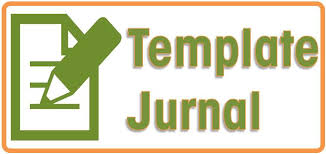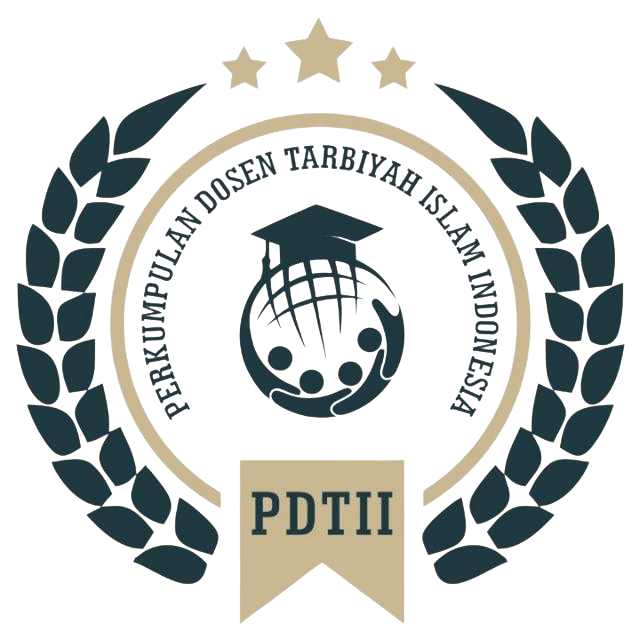MALAYSIAN ISLAMIC SECONDARY SCHOOL LEADERS’: LEADERSHIP CHALLENGES
Keywords:
Malaysian Islamic secondary, school leaders, leadership challengesAbstract
This study aims to explore the Malaysian Islamic secondary school (SMA) leaders’ leadership challenges. To respond to the study aim, a qualitative method using interview was applied to seven leaders of Islamic Secondary Schools. The informers were selected based on some criteria such as the length of service as a leader and leadership knowledge. The data that were analysed using thematic analysis reported seven challenges of Malaysian Islamic secondary school leaders’ leadership, namely: (i) lack of knowledge, in particular, the field of school management such as finance, IT, asset, data and information, (ii) lack of management skill to figure out conflicts regarding incentive differences among senior and novice teachers, (iii) lack of collaboration among stakeholders, (iv) need to allocate more finance for the competency development programme such as enhancing novice teachers’ pedagogical skills, (v) Inadequate planning of valuable programme for students residing in hostel, (vi) less concern to support some Ministry of Education’s policies, and (vii) less concern on the changing environment, in particular, the field of pedagogical changes for the post of COVID-19 pandemic. The implication of this study is to be aware for the educational stakeholders, in particular, the school leaders, to take into account this study findings in order to make self-improvement for enhancing the students learning and school achievement
Downloads
References
Abdul Hamid Othman. (1992). Ke arah penyelarasan dan penyatuan sistem pentadbiran dan pelajaran sekolah-sekolah menengah agama dan arab di Malaysia. In UKM (Ed.), Seminar Penyelidikan Islam di Malaysia. UKM Bangi (pp. 30–65). UKM.
Akta Pendidikan 1996 (Akta 550), Seksyen 15 (Malaysia), (2018).
Amin, M. H., & Jasmi, K. A. (2012). Sekolah agama di Malaysia: Sejarah, isu dan cabaran. Univerti Teknologi Malaysia.
Amri, M., Saharuddin, S., & Ahmad, L. O. I. (2019). The implementation of Islamic education: The process of instilling akhlakul karimah (noble characters) for Madrasah Tsanawiyah students. Tadris: Jurnal Keguruan Dan Ilmu Tarbiyah, 4(1), 117–125. https://doi.org/10.24042/tadris.v4i1.4070
Ardiansyah, M. Z. (2019). Pesantren Hybrid Worldview: Moderatisasi Paradigma Penalaran Keislaman dan Pemenangan Kontestasi Wacana Daring. Jurnal Pendidikan Agama Islam (Journal of Islamic Education Studies), 7(1), 1–18. https://doi.org/10.15642/jpai.2019.7.1.1-18
Arlinwibowo, J., Retnawati, H., Kartowagiran, B., & Kassymova, G. K. (2020). Distance learning policy in Indonesia for facing pandemic COVID-19: School reaction and lesson plans. Journal of Theoretical and Applied Information Technology, 98(14), 2828–2838.
Atiqah, T. A., & Liu, O. P. (2018). Latar belakang sejarah sistem pendidikan dan masyarakat majoriti minoriti di Malaysia. International Colloqium on Integration Platform Binding Differences and Diversity, 74–100.
Azizi Abu Bakar, Mohd Nor Jaafar, Jazmi Md Isa, & Abdullah Shuhairimi. (2014). Transformation leadership at the Sekolah Agama Rakyat: A purpose towards the development of education. Journal of Human Development and Communication, 3, 1–7.
Azizi Umar, & Supyan Hussin, S. (2008). Peranan kerajaan negeri dan pusat ke atas sekolah agama rakyat: Suatu kajian masalah pengurusan bersama terhadap pemilikan kuasa (Issue Januari).
Azizi Umar, & Supyan Hussin. (2009). Pendaftaran Sekolah Agama Rakyat Sebagai Sekolah Bantuan Kerajaan : Kajian Implikasinya ke Atas Perlembagaan Persekutuan dan Akta Pendidikan 1996. International Conference on Research in Islamic Law, October 2015, 1–27.
Azizi Umar, & Supyan Hussin. (2012). Cabaran Penyelarasan Kuasa antara Kerajaan Negeri dan Persekutuan dalam Mengurus Sekolah Agama Bantuan Kerajaan ( SABK ). 4(1), 21–30.
Azizi Umar, Jamsari Ezad, Hassan, W. Z. W., Sulaiman, A., Muslim, N., & Mohamad, Z. (2012). Appointment as principal of government-aided religious school (SABK) in Malaysia. Australian Journal of Basic and Applied Sciences, 6(10), 417–423.
Azizi. (2011). Perbandingan kadar gaji guru senior dan guru novis dalam Sekolah Menengah Agama. Jurnal Pendidikan Islam, 15(2), 123–140.
Bahagian Pendidikan Islam, K. (2015). Pelasanaan Kurikulum Bersepadu Dini dan Kurikulum Bersepadu Tahfiz di Sekolah Agama Bantuan Kerajaan (SABK) Mulai tahun 2015. Bahagian Pendidikan Islam, KPM.
Brown, A. H., & Timothy, G. D. (2016). The essentials of instructional design. In The Essentials of Instructional Design (3rd. Editi). Routledge. https://doi.org/10.4324/9781315757438
Bushra Yusof. (2008). Dasar Ekonomi Baru (DEB). Percetakan Nasional.
Chua Yan Piaw. (2012). Asas statistik penyelidikan. McGraw Hill Sdn Bhd.
Creswell, W. J. (2009). Research design: Qualitative, quantitative, and mixed methods approaches. In SAGE Publication Ltd (Vol. 3). https://doi.org/10.2307/1523157
Davies, B., & Davies, B. J. (2010). Strategic leadership. International Encyclopedia of Education, 34–39. https://doi.org/10.1016/B978-0-08-044894-7.00447-4
Dewi, N. N., & Wibowo, R. (2020). The effect of leadership style, organizational culture and motivation on employee performance. Management Science Letters, 10(9), 2037–2044. https://doi.org/10.5267/j.msl.2020.2.008
Federal Constitution, (1997).
Fotheringham, P., Harriott, T., Healy, G., Arenge, G., & Wilson, E. (2022). Pressures and influences on school leaders navigating policy development during the COVID-19 pandemic. British Educational Research Journal, 48(2), 201–227. https://doi.org/10.1002/berj.3760
Hamid, D. H. T. B. A. H., Omar, A. H. H., & Sariffudin, R. S. (2005). Aplikasi Perisian Nvivo Dalam Analisis Data Kualitatif. Qualitative Conference, 1–18. http://eprints.utm.my/2220/1/p24.Dayang_Hjh_Tiawa.pdf
Hasmayni, B., Siregar, F. H., & Aziz, A. (2020). Establishment of character through boarding school education in students in Pondok Pesantren. 384(Aisteel), 238–241. https://doi.org/10.2991/aisteel-19.2019.51
Ilhaamie, A. G. A., & Raudah, S. (2018). Job satisfaction level of non-government islamic religious school teachers. Akademika, 88(2), 35–57.
Isabella, Alfitri, & Ardiyan Saptawan. (2020). The Implication of COVID-19 Pandemic Towards Education, Social Life and Global Economics. In M. M. A. ALFITRI, S. K. MUCHLIS, & A. R. AHMAD (Eds.), The 3rd International Conference on Social Sciences & Humanities 2020 (Issue December, p. 1058). Universiti Kebangsaan Malaysia. https://www.researchgate.net/publication/291974748_Analisis_Keperluan_Kurikulum_Pendidikan_Vokasional_Pelajar_Bermasalah_Pembelajaran_LD_di_Malaysia
Kayadibi, S., & Buang, A. H. (2011). The role of Islamic studies in muslim civilization in the globalized world: Malaysian experience. Jurnal Hadhari, 3(2), 83–102. http://irep.iium.edu.my/10528/
Klaus, S. (2018). The fourth industrial revolution. In World Economic Forum (pp. 49–78). Crown Business.
KPM. (2013). Pelan Pembangunan Pendidikan Malaysia 2013 - 2025. Education, 27(1), 1–268. http://linkinghub.elsevier.com/retrieve/pii/S0742051X10001435
KPM. (2017). Dasar pendidikan kebangsaan. Kementerian Pendidikan Malaysia.
KPM. (2020). Pendidikan menengah/Sekolah Agama Bantuan Kerajaan (SABK). https://www.moe.gov.my/pendidikan/pendidikan-menengah/sekolah-agama-bantuan-kerajaan-sabk).
Leithwood, K., & Levin, B. (2008). Understanding and assessing the impact of leadership development. In P. P. J Lumby, G. Crow (Ed.), International Handbook on Leadership Preparation (pp. 280–300). Lawrence Erlbaum Associates.
Leithwood, K., & Levin, B. (2010). Understanding how leadership influences student learning. International Encyclopedia of Education, 45–50. https://doi.org/10.1016/B978-0-08-044894-7.00439-5
Maalouf, G. Y. (2019). Effects of collaborative leadership on organizational performance. International Journal of Multidisciplinary Research and Development, 6(1), 138–144. https://doi.org/10.22271/ijmrd.2019.v6.i1.25
Melum, M. (2002). Developing high-performance leaders. Quality Management in Health Care/Fall, 11(1), 55–68.
Merriam, S. B. (2009). Qualitative research: A guide to design and implementation. In Jossey-Bass. Jossey-Bass.
Merriam, S. B. (2016). Qualitati research: A guide to design and implementation.
Miles, M. B., & Michael Huberman. (1994). Qualitative data analysis: An expanded sourcebook (2nd editio). SAGE Publications India Pvt Ltd.
Mobarak, H. (2016). Leadership Pattern: A Comparative Study Between Conventional and Islamic Perspective. International Journal of Ethics in Social Sciences, 4(1), 2308–5096. http://www.crimbbd.org/wp-content/uploads/2016/11/07.-Mobarak-Hossain.pdf
Mohd Ibrahim K. Azeez. (2017). Kompetensi kepemimpinan pengetua sekolah berprestasi tinggi, sederhana dan rendah di Selangor. Universiti Malaya.
Mohd Ridhuan, M. J., & Nurulrabihah, M. N. (2020). Kepelbagaian metodologi dalam penyelidikan reka bentuk dan pembangunan.
Mohd Suhardi Mat Jusoh. (2015). Pelaksanaan program tarbiah dalam kalangan pelajar asrama sekolah menengah kebangsaan agama (SMKA) Pulau Pinang [Universiti Sains Malaysia]. In Universiti Sains Malaysia. https://doi.org/10.1377/hlthaff.2013.0625
Muhammad Faizal, A. G., & Crow, G. . (2013). Amalan komuniti pembelajaran profesional: Perspektif pemimpin sekolah cemerlang negara maju. Jurnal Kurikulum & Pengajaran Asia Pasifik, 1(1), 10–27.
Muhammad Faizal, G., Saedah, S., Radzuan, K., Husaina Banu, K., Shahril, M., & Faisol, I. (2013). Amalan Sekolah Cemerlang Di Sekolah Berasrama Penuh Dan Sekolah Menengah Kebangsaan Agama : Satu Perbandingan. The Online Journal of Islamic Education, 1(2), 30–50.
Nor Musfirah Mohamad. (2021). Cabaran pedagogi norma baharu di Kolej Universiti Islam Perlis (KUIPS) ketika pandemik wabak COVID-19. 14, 243–254.
Pi, J., & Zhang, P. (2017). Social conflict and wage inequality. Journal of Economics/ Zeitschrift Fur Nationalokonomie, 121(1), 29–49. https://doi.org/10.1007/s00712-016-0515-3
Pont, B., Nusche, D., & Moorman, H. (2008). Improving School Leadership. In Improving School Leadership (Vol. 1). OECD. https://doi.org/10.1787/9789264082915-et
Rahimah Ahmad, binti, & Ghavifekr, S. (2014). School leadership for the 21st century: A conceptual overview. Malaysian Online Journal of Education, 2(1), 48–61.
Razaleigh Muhamat. (2014). Peranan guru pendidikan Islam dalam pengurusan aktiviti dakwah. Jurnal Pendidikan, 1(2), 2–10.
Saedah Siraj, B., & Muhammad Ridhuan Tony Lim, Abdullah Rozaini Muhamad Rozkee, B. (2020). Pendekatan penyelidikan rekabentuk dan pembangunan. UPSI.
Saedah Siraj. (2008). The role of the principal in managing religious secondary schools in Malaysia. Journal of Educational Administration, 46(6), 704–719.
Sahid, U., Wasliman, I., Muchtar, H. S., & Insan, H. S. (2021). Management of student characteristics through extracurricular activities in the school environment based on Islamic boarding schools. Munaddhomah: Jurnal Manajemen Pendidikan Islam, 2(2), 116–125. https://doi.org/10.31538/munaddhomah.v2i2.97
Schwartzman, R. (2020). Performing pandemic pedagogy. Communication Education, 69(4), 502–517. https://doi.org/10.1080/03634523.2020.1804602
Sholeh, Muh Ibnu. “Technology Integration in Islamic Education: Policy Framework and Adoption Challenges.” Journal of Modern Islamic Studies and Civilization 1, no. 02 (7 Agustus 2023): 82–100. https://doi.org/10.59653/jmisc.v1i02.155.
Terry, G., Hayfield, N., Clarke, V., & Braun, V. (2019). Thematic analysis. In C. Willig & W. S. Rogers (Ed.), The SAGE Handbook of Qualitative Research in Psychology (Second Edi, pp. 17–37). SAGE Publications, Inc.
The Asia Foundation. (2020). Enduring the pandemic: Surveys on the impact of COVID-19 to the livelihoods of Malaysian MSMEs and workers. The Asia Foundation.
Tintoré, M., Cunha, R. S., Cabral, I., & Alves, J. J. M. (2022). A scoping review of problems and challenges faced by school leaders (2003–2019). Educational Management Administration and Leadership, 50(4), 536–573. https://doi.org/10.1177/1741143220942527
Tschannen-Moran, M., & Gareis, C. R. (2015). Principals, trust, and cultivating vibrant schools. Societies, 5(2), 256–276. https://doi.org/10.3390/soc5020256
UNESCO. (2017). UNESCO moving forward the 2030 Agenda for Sustainable Development. The United Nations Educational, Scientific and Cultural Organization, 22.
UNICEF. (2022). Education 2030 in Malaysia.
World Economic Forum. (2019). The Global Competitiveness Report 2019. In World Economic Forum. http://www3.weforum.org/docs/WEF_TheGlobalCompetitivenessReport2019.pdf
World Economic Forum. (2020). Schools of the future: Defining new models of education for the fourth industrial revolution. World Economic Forum Reports 2020, January, 1–33. www.weforum.org
Wheatley, K. F. (2018). “Student achievement, marketable job skills, and global competitiveness”: America’s unhealthy education priorities. International Journal of Learning, Teaching and Educational Research, 17(6), 51–67. https://doi.org/10.26803/ijlter.17.6.4
Widhyanti, R. & Shahril@Charil, M. (2016). Headmaster instructional leadership and organizational learning on the quality of madrasah and the quality of graduates the State Madrasah Aliyah at Jakarta capital region. Higher Education Studies, 6(1), 159–168.
Zawawi, Z., Yahya, D., & Mohd Faiz, M. Y. (2020). Differences in the level of teachers’ well-being in SMK and SABK. International Journal of Management (IJM, 11(7), 1133–1144. https://doi.org/10.34218/IJM.11.7.2020.101
Zunaidi Harun, A.Ghani, M. F., Radzi, N. M., & Ismail, Z. (2020). Leadership within Religious-Based School in Malaysia: A Meta-Analysis Study. JIEMAN: Journal of Islamic Educational Management, 3(1), 129–162. https://doi.org/10.35719/jieman.v3i1.67







